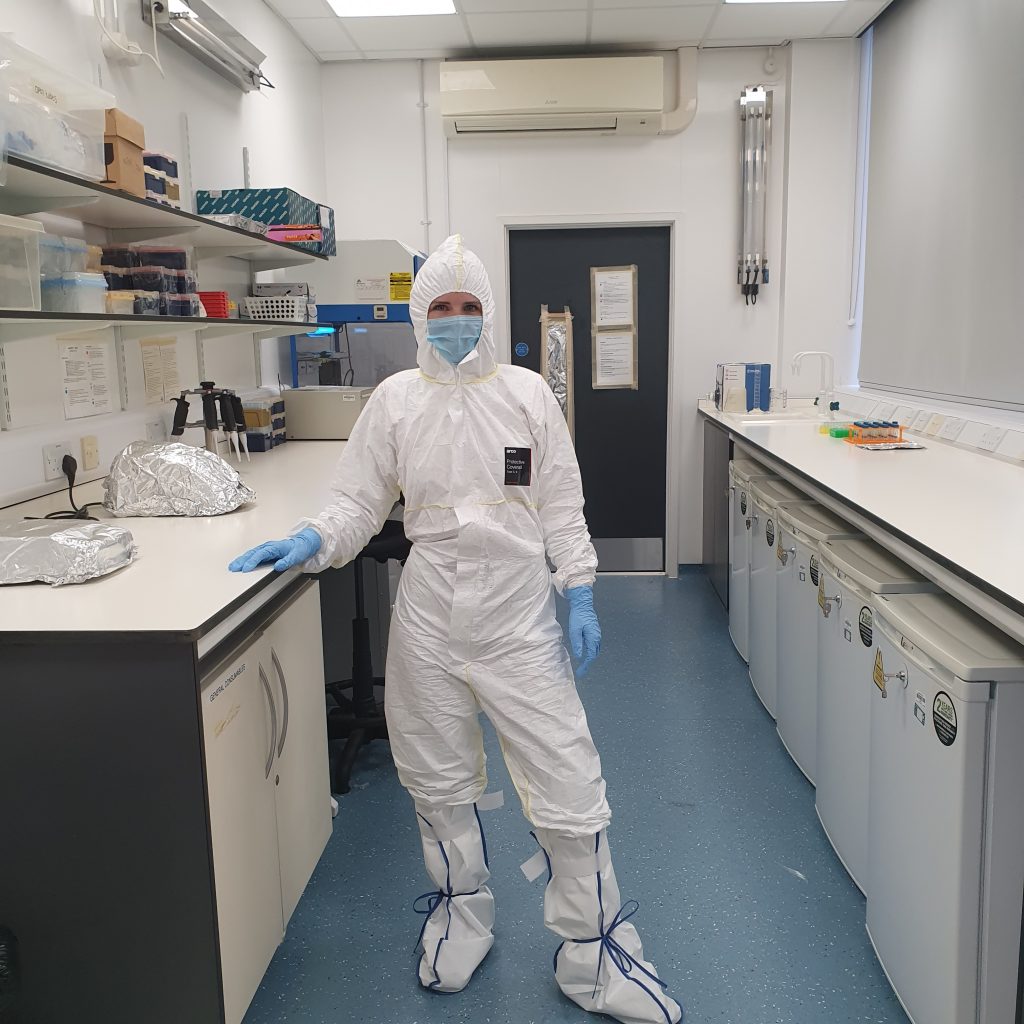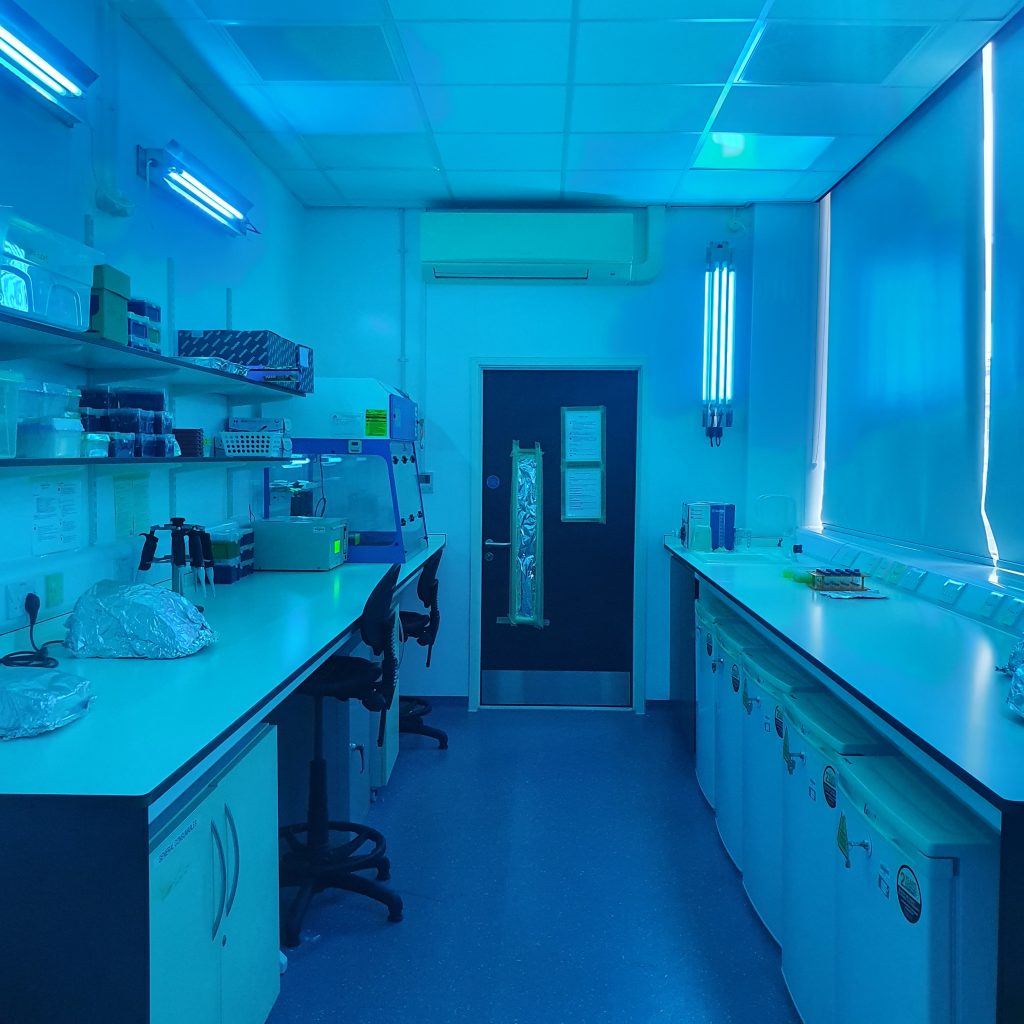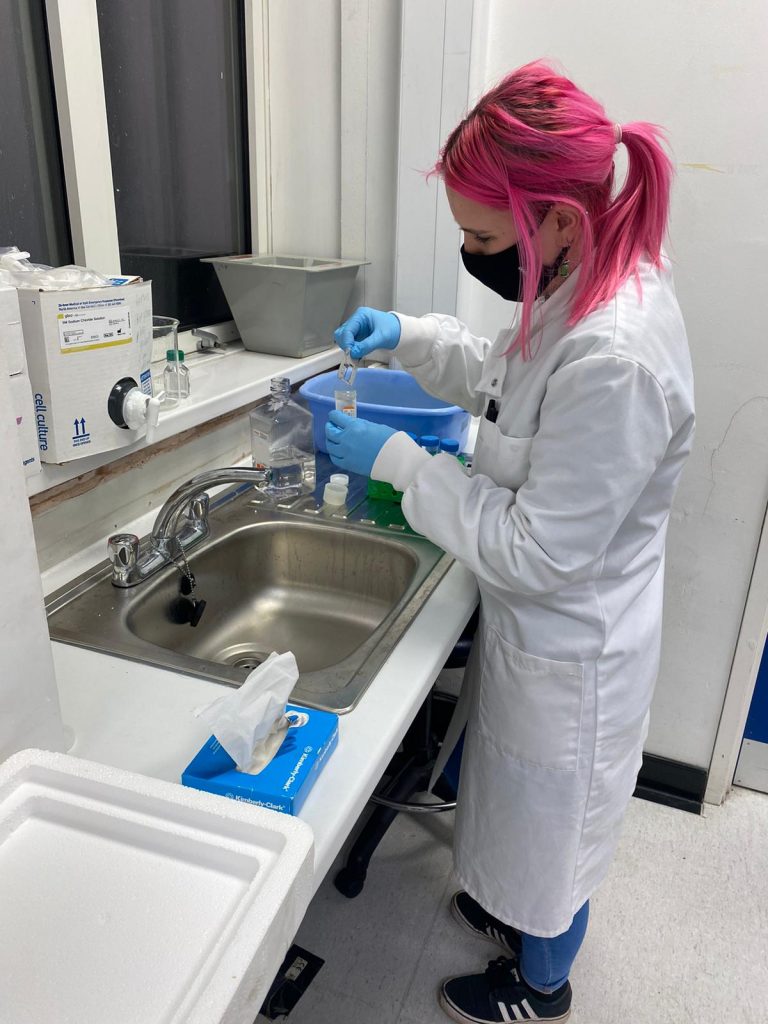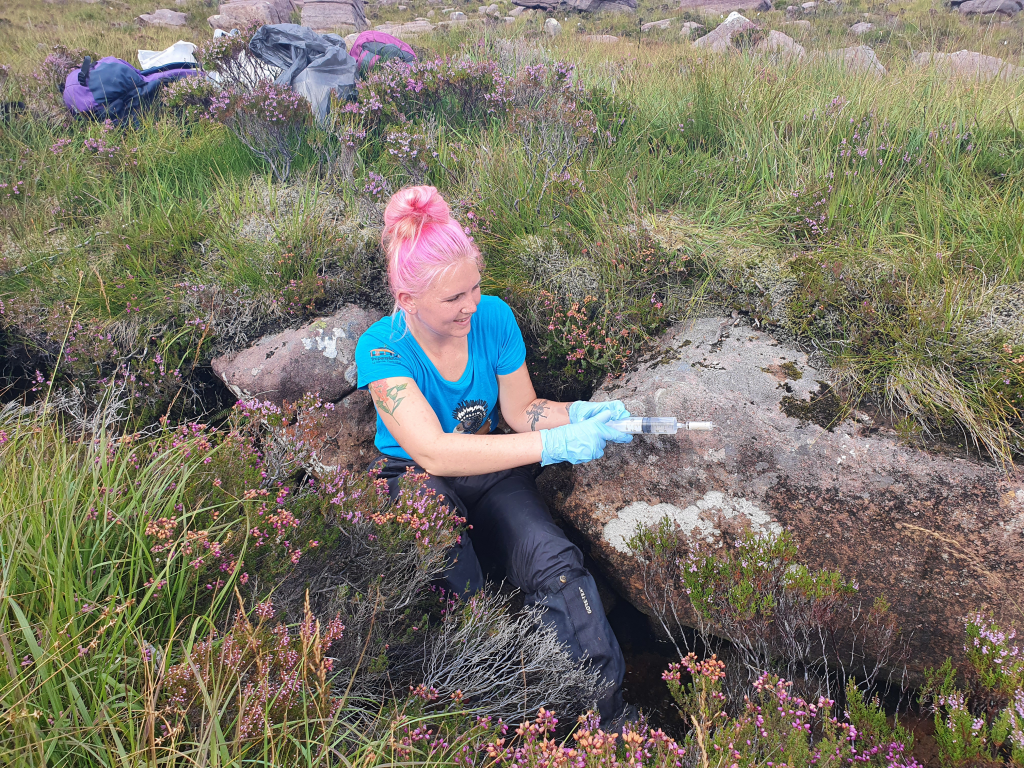Holly Broadhurst is a PhD student at the University of Salford who holds an undergraduate degree in Zoology with Animal Behaviour and a master’s in Wildlife Conservation.
TOP TIPS…
Finding the right course to study can be tricky. Holly recommends discussing topics that interest you with your peers and lecturers. This can increase your passion and help you build on your ideas.
“I currently study Molecular Ecology by using genetic techniques to monitor mammals, I did this from a non-genetic research background. I found a topic I was passionate about and I ran with it, I believed I could do it and that is what I would tell to anyone who wants to study science when they may think they’re not ‘good enough’.”
Holly Broadhurst

INSIDE THE LAB…
Last summer, Holly carried out her first fieldwork season and collected environmental DNA water samples. Her research aim is to test the effectiveness of eDNA metabarcoding to determine the presence/absence of terrestrial and semi-aquatic mammals in comparison to conventional surveying methods such as live traps, camera traps, latrine surveys (for water voles) in England and Scotland.
She collected eDNA water samples next to camera traps that were set up in 2017 and by comparing the methods the accuracy of eDNA can be calculated using occupancy modelling techniques. Holly is currently analysing those samples in the lab and has just put on her first independent Miseq sequencing run. She has carried out DNA extraction from the eDNA samples that were collected, PCR, library preparation and sequencing. A lot of Holly’s time at the moment is spent in Cockcroft laboratory.
ON CAMPUS…
When Holly’s not in the Cockcroft laboratory, you can find her in the eDNA clean-lab where she extracts DNA from samples. The lab is equipped with next-generation sequencing equipment that allows Holly to process her samples.
“The eDNA clean-lab is equipped with UV lights to decontaminate surfaces and equipment, this lab is extremely important for my scientific research as it helps to reduce the risk of cross-contamination between my samples.”
Holly Broadhurst

HOW HOLLY’S PHD IMPROVED HER MENTAL HEALTH…
During Holly’s master’s, she was unsure of what she wanted to do and suffered with depression and anxiety. She was introduced to environmental DNA by Dr Allan McDevitt, her dissertation supervisor at the time. This was where Holly’s passion for eDNA began and when her mental health started to improve. Appling for a PhD provided Holly with the opportunity to work towards something that has societal and environmental impact and this positively influenced her mental health.
“Most importantly, I was introduced to lab work. I did a bit of lab work in my undergraduate degree but not a lot. My lab work allowed me let go of any internal stresses and negative feelings, when you are working with molecular concentrations and volumes, a lot of concentration is needed.
Whilst pipetting microliters from Eppendorf to Eppendorf you can not think about anything else except that. eDNA is extremely sensitive to cross-contamination, therefore being vigilant in the lab is essential. I would go as far to say it is like meditation to me.”
Holly Broadhurst

To keep up with Holly’s scientific adventures you can head over to @pinkhaired_scientist on Instagram. ??
